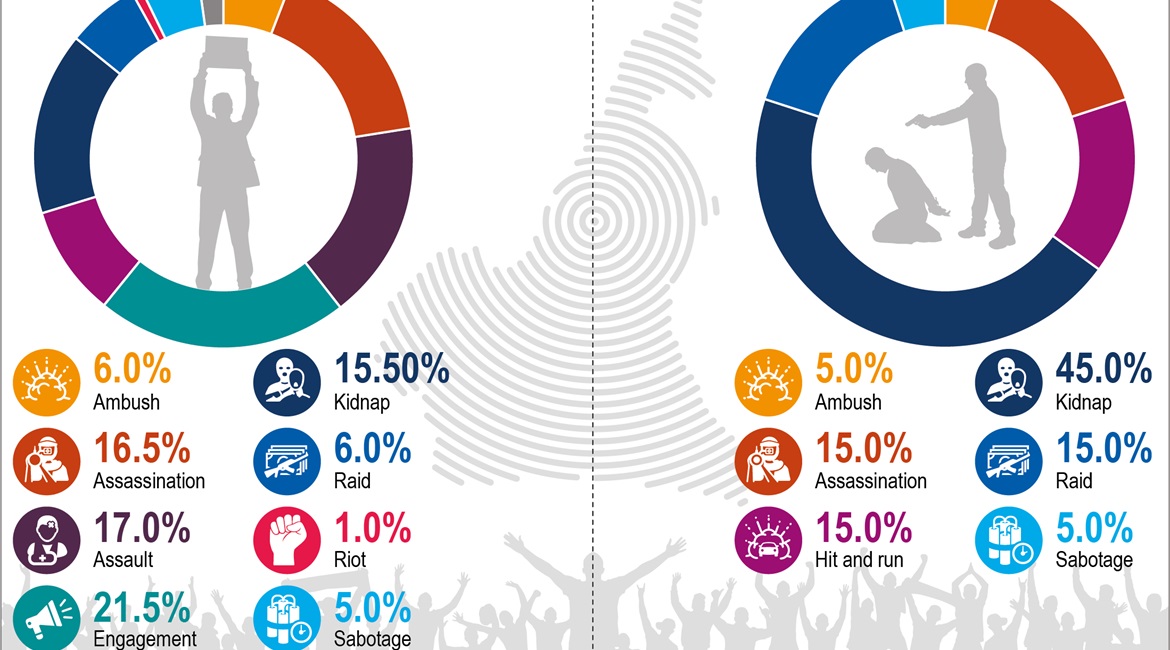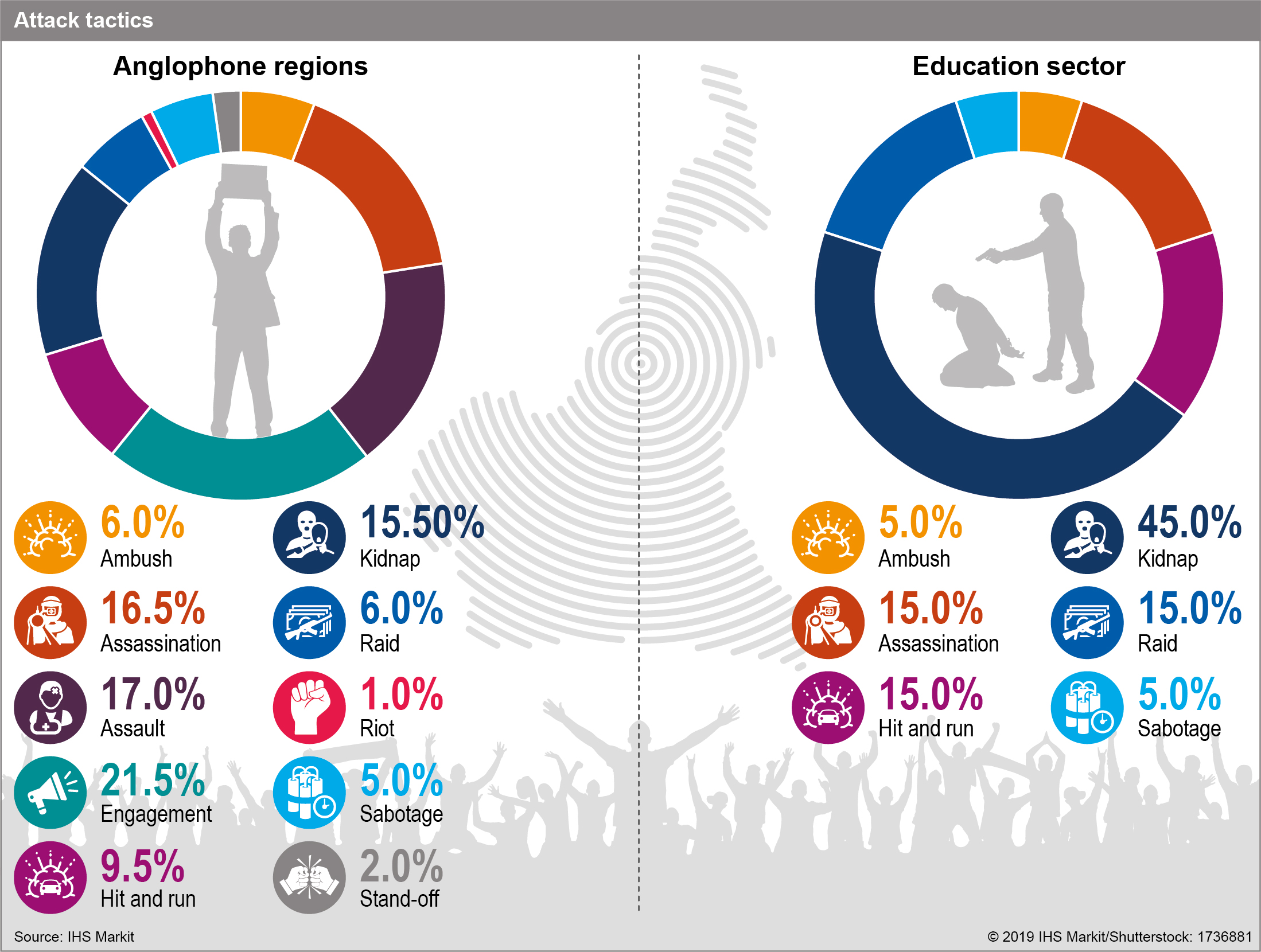
Jane’s Terrorism and Insurgency Centre (JTIC) has recorded an increase in the tempo of militancy in Cameroon’s Anglophone Nord-Ouest and Sud-Ouest regions, as well as the neighbouring Littoral Region, between 1 January 2017 and 1 January 2019. Only 22 attacks were recorded in these regions in 2017, compared to 178 in 2018 – a 709.1% increase – illustrating the rapidly expanding crisis there. Indeed, the frequency of militant violence increased from an average of 0.4 attacks per day in the first half of 2018 to 0.6 attacks per day in the second half of the year. Within this drastic increase in attacks was an uptick in attacks on the education sector. Although this sector has not, and will not in the future, represent an overwhelming priority for Anglophone militants, its emergence as a focal point for violence alongside expected targets such as the security forces is notable, and this change in the operational patterns of Anglophone militants is worthy of examination.
Rising number of kidnappings
The crisis – motivated by a desire for greater autonomy in, if not independence for, the Anglophone regions – was triggered by the state’s perceived imposition of a Francophone agenda, and violence was precipitated by the mass arrests of lawyers and teachers on terrorism charges during non-violent protests in 2016. The perception of government intransigence has been used by Anglophone groups to justify violent means. On 21 November 2018, the BBC reported that unspecified Anglophone militants had continually urged local residents to boycott schools until the government holds a regional independence referendum, in a bid to force negotiations.

Looking to read the full article?
Gain unlimited access to Janes news and more...




